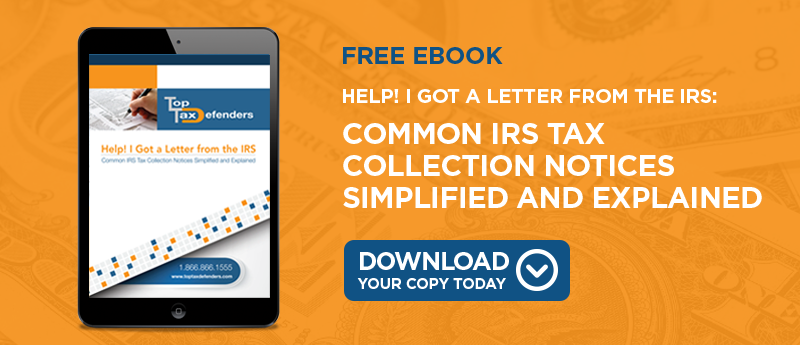
As it turns out, non-profits must follow more than the tax law when it comes to being an exempt entity. If they hire employees, they also have the responsibility for payroll taxes, just like any business.
The catch is that if you are considered a “responsible person” at a non-profit, you may be personally liable for 100% of unpaid payroll taxes. So, if you are on the board of a non-profit or have some other authority, you may want to read the rest of this. If you are considering joining a non-profit, well, you might want to read this, too, before you step up.
Tax-Exempt Non-Profit Doesn't Mean What You Think It Means
Being a non-profit sounds like a pretty sweet set-up, tax-wise. Tax-exempt means there are no taxes paid to Uncle Sam, right?
No, not really. While the non-profit itself benefits from tax preferences from exemptions and deductions, it still sends a health portion to the IRS. According to the Spring 2019 issue of the Nonprofit Quarterly, these tax-exempt entities still send about $240 billion to a variety of government entities as taxes, tax withholding, and fees.
- Federal individual income tax, employee withholding
- Old-Age, Survivors, and Disability Insurance (OASDI aka Social Security) and Medicare, employer portion
- State individual income tax, employee withholding
- State unemployment insurance tax
- State sales tax collections
- Utility taxes/franchise fees
- Federal unrelated business income (UBIT)
- Private foundation excise tax
- State unrelated business income tax (UBIT)
- Excise tax on excess executive compensation*
- Excise tax on net investment income of private colleges and universities*
*These last two are new as of 2018.
As you can see, quite a lot of tax money makes its way to the IRS from the non-profit sector, and most of it has to do with employee payroll. One thing to check when considering joining the board or taking even a volunteer position with a non-profit is finding out if it has a federal Employer Identification Number (EIN).
Employment Tax 101 for Exempt Organizations
As we just mentioned, a tax-exempt organization that hires paid workers must file for a federal EIN or Employer Identification Number. The number is used to track payment (and non-payment) of payroll taxes, among other things.
Once an employee is hired, the non-profit is required to withhold the appropriate payroll taxes:
- Federal Income Tax Withholding (FITW)
- Social Security and Medicare Taxes (FICA)
- Federal Unemployment Taxes (FUTA)
Depending on the location of the non-profit or the employee, the tax-exempt business may also be required to withhold local and state taxes as well. Tax withholding isn’t just for cash wages either. It can include lodging, meals, services, and other payments in kind. Be sure the non-profit understands not only the business about meals and such, but that payroll taxes are expected to be paid in cash, not via a coupon. Electronic payment is a convenience offered.
Now, it can get tricky. There is a difference between employees, contractors (independent contractors), volunteers, and board members. Not only are employees not treated the same as contractors, but volunteers may also only be offered nominal pay. If they receive too much, it becomes taxable for the volunteer and for the non-profit business. Board members may be paid reasonable compensation, but you need to put it to a special IRS test to determine how much that is.
To get the documentation right, the organization should have a W-4 on file for each employee. Withholding is calculated according to the Employer’s Tax Guide (Publication or Circular E) and the Employer’s Supplemental Tax Guide (Publication 15-A).
By the way, there are other nuances to check out having to do with minimum wage, the payment of disabled employees, and employees under the age of 20.
The Trust Fund Recovery Assessment
So, how does the IRS go about rectifying a payroll tax shortage for the non-profit sector? Glad you asked.
The IRS goes by Section 6672(a) of the Internal Revenue Code (IRC). In layperson terms, the section says that anyone required to collect and pay tax imposed by the U.S. tax code who willfully fails to do so, shall be liable to a penalty equal to the amount of the tax evaded. In essence, all of it.
The act of levying the penalty is what goes by the fancy name of Trust Fund Recovery Assessment, probably to make it sound less negative.
Another fun fact: the IRS can also penalize a non-profit and an individual for excessive pay. Unfortunately, what is considered excessive is up for debate. It’s all relative, so your non-profit should probably consult a tax attorney to be sure. After all, over payment to a staff member could result in losing the tax-exempt status.
How to Tell If You Are a Responsible Person
You are only in danger of receiving a bill for unpaid taxes is you are considered a “responsible person” within the organization. As you may assume, officers and directors are pretty much responsible people. However, so are check-signers.
For example, if you are a volunteer manager of employees at a non-profit, and you have the authority to sign checks from the non-profit checking account, you are a responsible person. Even if you aren’t getting paid yourself.
If that last applies to you, don’t count on the Supreme Court to get you off the hook. It already let a huge penalty stand in the case of Davis v. United States.
Your only hope is that the IRS will commit an error in procedure that invalidates the penalty. In the case of Romano-Murphy v. Commissioner, the U.S. Court of Appeals for the Eleventh Circuit, the U.S. Tax Court, found that the IRS failed to provide a preassessment appeals hearing. The IRS was not allowed to collect the tax levy in that case.
Untangling tax code is never fun. It may seem that a non-profit would have an easier time of it, except tax-exempt organizations still shoulder a heavy documentation burden. When it comes to payroll taxes, non-profits have the same responsibilities as any business.
If you are involved with a non-profit in the capacity of an officer, director, or just someone who signs checks, make sure the organization is withholding the appropriate payroll taxes and paying the taxes to the U.S. Treasury.
Otherwise, you may find yourself responsible for signing a much larger check than you are accustomed to.




